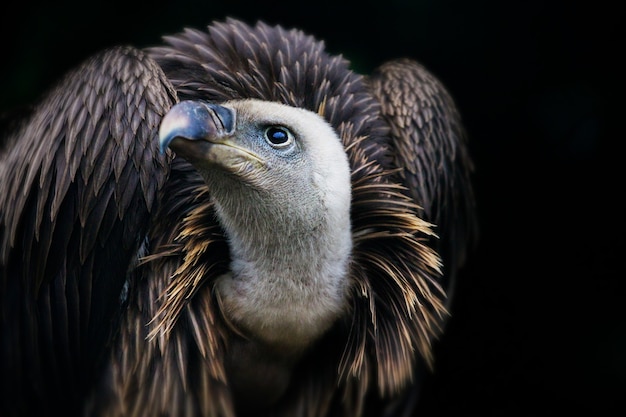Harpy Eagle Facts – Discovering the Majestic Bird of Prey

The harpy eagle is one of the largest and most powerful birds of prey.
With a wingspan of up to 7 feet, the harpy eagle can glide effortlessly through the dense rainforest.
Harpy eagles are known for their distinctive crests of feathers on their heads.
These majestic birds have incredible eyesight, allowing them to spot their prey from great distances.
Harpy eagles mainly feed on tree-dwelling animals like monkeys and sloths.
They have strong talons that can exert a force of over 100 pounds, making them efficient hunters.
Harpy eagles are incredibly agile, able to maneuver through the dense forest canopy with ease.
The harpy eagle is named after the harpies from Greek mythology, which were half-woman, half-bird creatures.
These birds are native to the tropical rainforests of Central and South America.
The harpy eagle is an apex predator, meaning it has no natural predators in its habitat.
It is estimated that there are only around 50,000 harpy eagles left in the wild.
Harpy eagles are monogamous and usually mate for life.
During courtship displays, male harpy eagles will perform aerial acrobatics to impress the female.
The female harpy eagle lays only one or two eggs at a time, which are incubated for about 55 days.
The chicks are born helpless and rely on their parents for food and protection.
Harpy eagles are known for their haunting, distinctive vocalizations.
Harpy Eagle Facts – Discovering the Majestic Bird of Prey part 2
Their calls can be heard over long distances and are often used as a territorial display.
Harpy eagles have long, powerful beaks that they use to tear apart their prey.
The feathers of the harpy eagle are highly sought after by indigenous tribes for ceremonial purposes.
They have a lifespan of up to 25 years in the wild.
Harpy eagles play an essential role in the ecosystem by regulating prey populations.
Due to their large size and fierce appearance, harpy eagles are often associated with strength and power in mythology and folklore.
Harpy eagles have an intricate hierarchy within their social structure, with dominant pairs maintaining territories.
Their near-silent flight allows them to approach their prey undetected.
Harpy eagles have a unique ability to rotate their heads almost 180 degrees, allowing for better visibility.
These birds have a wingspan that is longer than most small cars.
The harpy eagle is classified as near-threatened due to habitat loss and illegal hunting.
Despite their large size, harpy eagles are incredibly skilled at navigating through narrow spaces in the forest.
Harpy eagles have a strong sense of smell, which helps them locate hidden prey.
The harpy eagle is often referred to as the American harpy eagle to distinguish it from other species.
These birds have long, broad wings that allow for efficient gliding.
Harpy eagles have a striking black and white plumage, which helps them camouflage in the shadowy rainforest.
The harpy eagle’s curved beak is perfect for tearing meat apart.
These majestic birds are highly territorial and defend their territories fiercely.
The harpy eagle is one of the loudest birds, with calls that can be heard over a mile away.
They have been known to soar at heights of up to 10,000 feet.
Harpy eagles are considered a symbol of power and strength in many indigenous cultures.
These birds have a low reproduction rate, with females usually laying only one egg every two to three years.
Harpy eagles have specialized feathers on their faces that help them redirect sound to their ears.
They are excellent flyers, capable of reaching speeds of up to 50 miles per hour.
Due to their large size, these birds require a vast territory to find enough prey for survival.
Harpy eagles have been hunted in the past for their feathers and body parts, causing a decline in their population.
The harpy eagle is the national bird of Panama.
These birds have a mythical reputation for their ability to snatch away human babies, although there is no evidence to support this.
The harpy eagle is an iconic species that represents the rich biodiversity of the rainforest ecosystem.